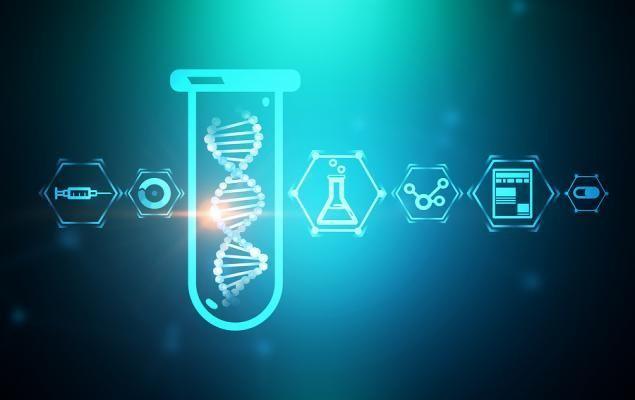
Chapter 13 Biotechnology Evaluation
Quiz by Jaime
Feel free to use or edit a copy
includes Teacher and Student dashboards
Measure skillsfrom any curriculum
Measure skills
from any curriculum
Tag the questions with any skills you have. Your dashboard will track each student's mastery of each skill.
With a free account, teachers can
- edit the questions
- save a copy for later
- start a class game
- automatically assign follow-up activities based on students’ scores
- assign as homework
- share a link with colleagues
- print as a bubble sheet
19 questions
Show answers
- Q1What is the term for manipulating the molecular basis of inheritance via recombinant DNA technology?Polymerase chain reaction (PCR)DNA fingerprintingBiotechnologyMendelian genetics45s
- Q2An organism that contains foreign DNA, which was inserted into its own genetic material, is calledforeignelectrophoresedtransgenicpolygenic45s
- Q3The earliest examples of biotechnology included thestudy and treatment of genetic diseases in people.use of genetic markers to learn more about genetic inheritance.use of selective breeding to provide better, more nutritious food.careful examination of patterns of bacterial inheritance.45s
- Q4Small, accessory chromosomes found in bacteria that are useful in recombinant DNA procedures are calledviroidsplasmidscentriolesbacteriophages45s
- Q5Plasmids arechromosomal loops made of RNA.small, replicating rings of DNA found in bacteria.noncircular DNA segments found only in bacteria.found only in three species of bacteria.45s
- Q6Recombinant DNA technologywill never be of economic importance.involves combining existing genes from different organisms.involves only changing genes in large mammals.randomly creates new genes from free nucleotides.45s
- Q7In biotechnology research, DNA fragments created by restriction enzyme action are separated from one another viagel electrophoresis.filteringcrossing over.centrifugation45s
- Q8The polymerase chain reaction (PCR) is essential forcreating recombinant plasmids.cutting DNA into many small pieces.making many copies of a small amount of DNA.analyzing a person's fingerprints.45s
- Q9Which of the following is the correct sequence of the polymerase chain reaction?Heat to 90°C (to bind primers and enzymes), then cool to 50°C (to separate DNA), then reheat to 70°C (to synthesize DNA).Heat to 70°C (to separate DNA), then cool to 50°C (to bind primers and enzymes), then reheat to 90°C (to synthesize DNA).Heat to 90°C (to separate DNA), then cool to 50°C (to bind primers and enzymes), then reheat to 70°C (to synthesize DNA)Heat to 70°C (to bind primers and enzymes), then cool to 50°C (to synthesize DNA), then reheat to 90°C (to separate DNA).45s
- Q10DNA moves within an electric field because itis negatively charged.makes up chromosomes, which are slightly electromagnetic.is positively charged.can possess different charges (positive or negative), depending on its base sequence45s
- Q11PCR enables scientists to do all of the following EXCEPT:make gene copies quite cheaply.make gene copies very rapidly.make billions of copies of a particular gene.sequence the bases within a gene as it is being copied.45s
- Q12Which of the following is currently used by the U.S. Department of Justice as a form of genetic "fingerprints" of criminals?PlasmidsSingle tandem repeats (STRs)The genes responsible for producing the unique patterns of swirls and loops on a person's fingersPolymerase chain reactions (PCRs)45s
- Q13Which of the following techniques amplifies a specific region of DNA?PCRThe use of DNA probesGel electrophoresisDNA profiles45s
- Q14Which of the following molecular techniques involves "DNA replication in a tube"?Gel electrophoresisPCRTransformationSTR45s
- Q15The enzymes used to cut genes in recombinant DNA research are calledrestriction enzymes.DNA polymerases.RNA polymerases.replicases45s
